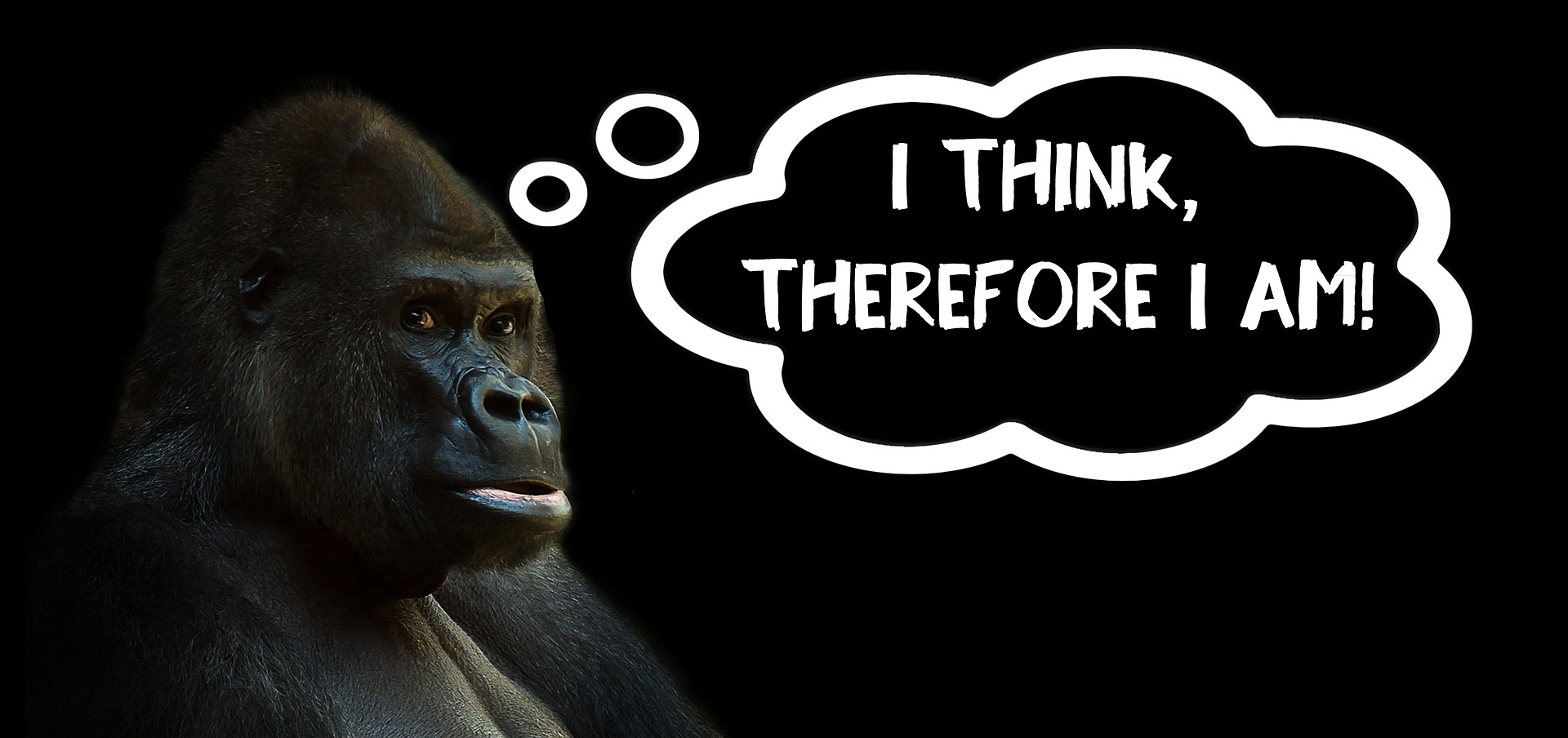 Submitted by Unself on
Submitted by Unself on

When was the last time you observed your thoughts – the incessant stream of neural impulses? Our mind, on average, has over 50,000 thoughts in a given day – even while busy with a certain task, it is forever racing ahead with numerous other thoughts – of potential rewards, of missed opportunities, of future actions and so on; more often than not at a neurotic pace.
Besides, for many of us, a large proportion of these thoughts have a negative slant – thoughts like, “I wish I were healthier; I dislike myself for being so socially awkward; I doubt if I will ever be successful; My spouse or colleagues don’t really value me; What if I don’t get promoted or lose my job? I hate my colleague for being so successful, despite his/her incompetence; I wish my children were smarter or respected me more; If only I had taken that step”, are all too commonplace.
The monkey mind
This mental chatter is no passing cloud, but a permanent ‘noise’ in our background. Driven by our karmic imprint and our life experiences, particularly during the impressionable childhood years, the monkey mind is a result of our deep inner insecurity about our physical life form and a constant endeavor to somehow control our destiny.
While some of this noise goads us towards personal and social development, much of it is dysfunctional. It restricts us from fully enjoying the present, resulting in lower effectiveness and a diluted sense of fulfillment from our time and actions. Besides, the negative undertones of many of our thoughts generate heightened emotions of fear, anxiety, anger or envy, making us restless, confused and impulsive.
Moreover, this state of being impacts our health. Persistent mental preoccupation elevates levels of stress hormone, which in turn suppresses our immune and digestive system. They also lead to lower energy levels, disturbed sleep, and an inability to be watchful of what we eat, often gravitating towards processed, sugary options.
Five ideas for taming our monkey mind
1. Eliminating comparisons from our life
Human beings are social animals and a considerable part of our self-identity is derived from our perception of our relative status in our social circle. We routinely judge ourselves, and our children, in comparison to peers. The reality that there’s always someone who’s stronger, richer, more beautiful or more knowledgeable than us only accentuates our inner insecurity.
To lead a contented life, and enjoy a quieter mind, we need be get more comfortable living by our own standards. We need to become aware of our personal values and commit to live by them; have high self-respect and recognize that only when we respect ourselves do we earn others’ respect; be mindful of our unique gifts and express them fully; and above all, be guided by self-imposed inner yardsticks of evaluation rather than any external comparison.
2. Living with an attitude of gratitude
Living in an achievement oriented modern society, we get so easily caught up in wanting more of everything in our life, making us discontented with wherever we are. We live with a sense of lack because we are constantly thinking about what we don’t have rather than be grateful for so much that we do.
Reorienting our thoughts to focus on what all has been, and is, working well for us gets us in touch with the numerous gifts we are blessed with, that we so often take for granted. Regularly reflecting on it strengthens our sense of inner security. Recently, reading Nick Vujicic’s book, Life Without Limits, I was touched by his deep sense of gratitude for his life, despite being born without any arms or legs. And what are you and I stressed about?
3. Knowing how whole and complete you are
At a deeper level, slowing down the restless mind involves realizing how whole and complete we already are, even if our mental models, steeped in the physical and material world, make us believe otherwise. The mind is a great servant, but a terrible master. Learning to detach ourselves, at regular intervals, from our obsessive thoughts and feelings, we begin to see how all our negative emotions and the sense of lack are nothing but perceptions created by our mind.
Looking deeper within and connecting with our inner wholesomeness brings to light the futility of our constant search for a perfect self. As an integral extension of this perfect universe, we are already complete and whole. We can break a glass container into as many pieces as we want, but the innate nature of each of those pieces remains the same. Each of us is one of those pieces of the universe.
4. Trusting the universe
Taming the monkey mind requires letting go of our incessant desire to control all our outcomes. This letting go of the fixation with the results requires having faith in something larger than ourselves. We need to appreciate that the universe is evolving perfectly at all times. The sun rises and sets as it needs to, the clouds turn into rain as they needs to, and the plants are born – some to become trees and some to die early – as they need to.
The universe is also unfolding in our life, as it needs to. It is we humans, who often resist it. Seized by our insecure mind, we get attached to certain outcomes, in the strong belief that these are necessarily better than any other possibilities. Learning to go with the flow of the universe and accepting that whatever happens, happens for our highest good, slows down our thought-patterns and helps us experience greater peace.
5. Practicing mindfulness
Mindfulness means being aware of the present moment. It entails trusting the present moment to be as precious as any other and valuing where we are, and whatever we are engaged with in the moment, over anywhere else that our mind makes us feel we could or rather be. When engaged in something, be it writing e-mail, talking to a child, reading the newspaper, or playing a sport, it is critical that we give our full attention to it.
Rajiv Vij
https://www.rajivvij.com/2014/09/taming-our-monkey-mind.html
- 737 reads